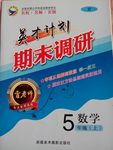题目内容
We admire him although he made many mistakes; ________ he was a great man.
- A.in all
- B.at all
- C.after all
- D.above all

 英才计划期末调研系列答案
英才计划期末调研系列答案 精英口算卡系列答案
精英口算卡系列答案There were red faces at one of Britain’s biggest banks recently. They had accepted a telephone order to buy £100,000 worth of shares from a 15-year-old schoolboy (they thought he was 21). The shares fell in value and the schoolboy was unable to pay up. The bank lost £20,000 on the deal which it cannot get back, because, for one thing, the young boy does not have the money, for another, being under 18, he is not legally liable for his debts. If the shares had risen in value by the same amount that they fell, he would have pocketed £20,000 profit. It certainly is better than delivering the morning newspaper. In another case, a boy of 14 found, in his grandmother’s house, a suitcase full of foreign banknotes. But they were now not used in their country of origin or anywhere else. This young boy headed straight to the nearest bank with his pockets filled with notes. The cashiers did not realize the country in question had reduced the value of its currency by 90%. They exchanged the notes at their face value at the current exchange rate. In three days, before he was found out, he took £200,000 from nine different banks. Amazingly, he had already spent more than half of this before the police caught up with him. Because he is also under 18 the banks have kissed goodbye to a lot of money, and several cashiers have lost their jobs.
Should we admire these youngsters for being enterprising and showing initiative or condemn them for their dishonesty? Maybe they had managed for years with tiny amounts of pocket money that they got from tight-fisted parents. Maybe they had done Saturday jobs for peanuts. It is hardly surprising, given the expensive things that young people want to buy, such as fashionable running shoes and computer games, if they sometimes think up more imaginative ways of making money than delivering newspapers. These youngsters saw the chance to make a lot of money and took it.
Another recent story which should give us food for thought is the case of the man who paid his six-year-old daughter£300 a week pocket money. He then charged her for the food she ate a few coins for her piggy bank(存钱灌)“She will soon learn the value of money, ” he said. “There’s no such thing as a free lunch. Everything has to be paid for and the sooner she learns that the better.” At the other extreme there are fond parents who provide free bed and board for their grown-up children, While even the most hard-hearted parents might hesitate to throw their children out on the streets, we all know of people in their twenties who still shamelessly live off their parents. Surely there comes a time when everyone has to leave the parental nest, look after themselves and pay their own way in life. But when is it?
【小题1】.
Recently one of Britain’s biggest banks _____.
| A.bought a lot of shares for a customer and brought him a great loss |
| B.lost money as its young customer had no money to pay his debts |
| C.lost much money because the shares they bought fell in value |
| D.received a telephone order to buy shares for a 21-year-old boy |
. The author’s attitude to the example of the two boys who cheated the banks is _____.
| A.objective | B.subjective | C.questioning | D.negative |
The man paid his daughter £300 a week pocket money and then required her to pay for her living expenses because _____.
| A.he wanted her to know making money was not easy |
| B.he wanted to save money for her future education |
| C.he thought it useful for family members to bear life hardships together |
| D.he wanted her to learn the value of money |
It can be concluded from the passage that the author believes that _____.
| A.children should leave the parental nest as soon as possible |
| B.grown-up children should live on their own |
| C.children should be taught not to cheat others |
| D.parents should give more pocket money to their children |